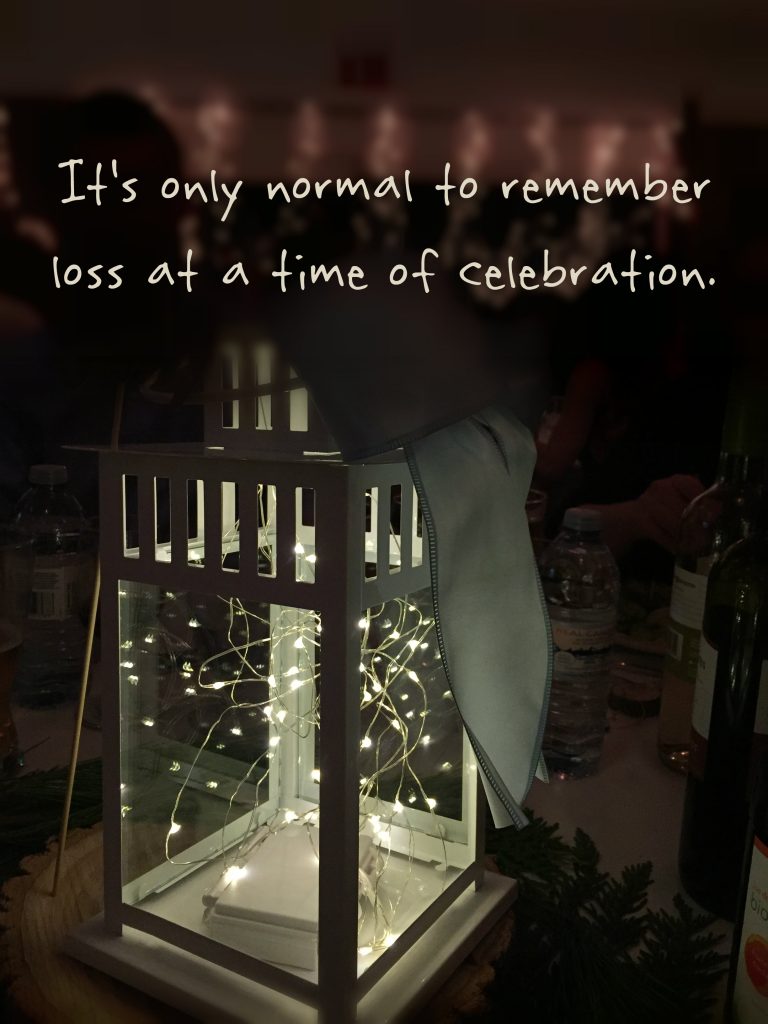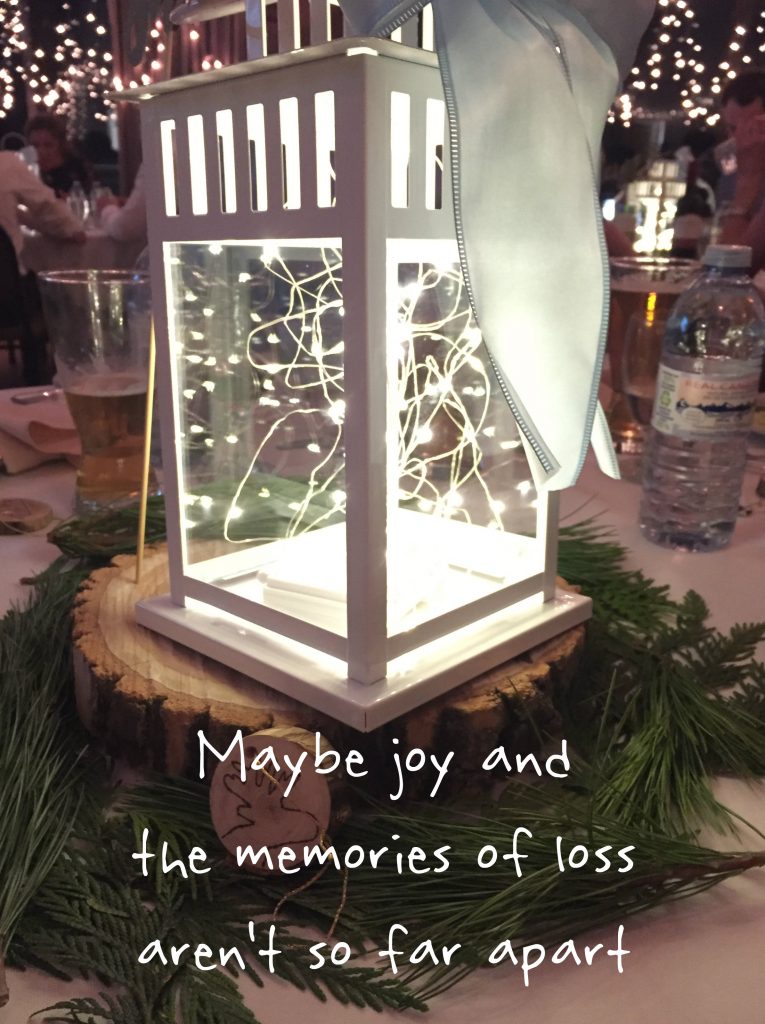My nephew was married last week to his beautiful bride, the love of his life. The one, above all other, that has captured his heart forever.
Warm hearts shone bright through the frigid day. Even the frozen pipes at the reception venue thawed a full 15 minutes before the wedding started! (Though I suspect it wasn’t love that thawed them, but good old fashioned heaters!)
In amidst the beauty of the day: pale ice blue dresses, lanterns with tiny sparkly lights, fir branches, wooden ornaments by each place setting–there was a hole:
- Four bridesmaids and a maid of honor beside the bride
- Four groomsmen with a gap beside the groom
The minister explained to the congregation that where the best man would normally stand, there was an empty space. The space honored S, the groom’s best friend died tragically in great pain several years ago.
The groom had called S’s mom several weeks before the wedding to explain that the best man spot would be vacant to honor his friend, S. The “best man duties” would be divided up amongst the groomsmen. One groomsman signed the marriage license, another gave the toast.
It couldn’t have been easy for S’s mom to come to the wedding. She was watching her son’s friend live out the dreams that every mother has for her own child. But when I asked her about how hard this was, she smiled easily and only spoke of gratitude of the opportunity to see her son’s friends. She told me of her joy to be around her son’s people as they were doing the things that young adults do. S’s mom celebrated the wedding day of my nephew…someone who was often in her home while S was alive. Folks came by to sit with her and remember her loss during the wedding, even while she celebrated the present occasion.
She and I spoke to each other about our kids–the one she misses, and the ones she revels in as they do life in full and wonderful ways. She asked me how she could pray for me, and I asked her in return.
There was something beautifully, painfully real about celebrating while also acknowledging the sadness that so often is part of the occasion.
Even the happiest events often have an undercurrent of grief. It just felt honest to name it.
It just felt, well, so authentic for my nephew to acknowledge the vein of sadness that would trail through the expansive canvas of the beautiful joy of the day. There was a wisdom to naming out loud what was on his heart even as he was celebrating the joining of his life with his bride.
It was right to:
- honour a life lost.
- acknowledge now, even years later, that S is very much remembered and loved.
It was beautiful.
What was cool about the whole thing is that the wedding remained a wedding.
It wasn’t a downer to remember S at the ceremony or the reception–a real celebration got real-er.
Mentioning S didn’t hijack a joyous occasion to become one of sadness. Rather, it added to the significance of the beautiful day.
And somehow, that gives us all a little permission to grieve those that are gone at a later time.
Our world often suggests to us that somehow publicly remembering a loss ends at the funeral. Our culture gives you the week between the death and the funeral, and then you’re supposed to be done–in public anyways. And sometimes, the implication is you’re supposed to be done grieving in your heart too. Why?
Many a client has come into my office wondering what’s wrong when they still find themselves remembering and grieving a long time later. What’s wrong with that?
Nothing.
The hole in the celebration made the rest of the day around somehow more solid, more authentic, more lifegiving.
When I grow up, I want to be just like my nephew.
I want to able to hold sadness while embracing joy. Wouldn’t it be great to remember the past even while celebrating the future? And let’s love fiercely those who are present and hold gently those who are gone–at the same time.








Write a Comment